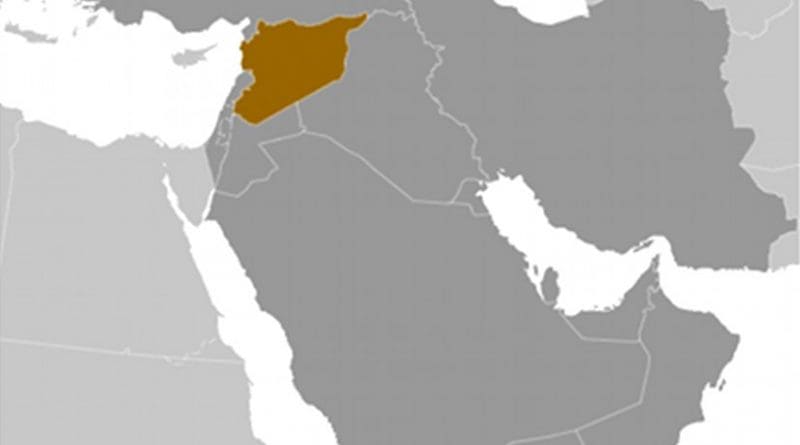Syria: Talkin’ ‘Bout A Revolution This Time? – OpEd
News from Syria is grim, with over 100 people killed after Friday prayers in mass protests against the authoritarian rule of Bashar Assad and the forty-year dynasty his family has maintained in Syrian politics. Another 11 people were killed on Saturday at funerals for those killed on Friday. NPR news reported on outraged mourners toppling statues of Assad’s father and dynastic founder in various communities and ripping down pictures of the son in acts of defiance that would’ve been unthinkable only a month ago. Activists were heard on air committing themselves to freedom or death.
Syria, like the earlier burgeoning protests of Tunisia, Egypt, Libya, and Yemen seems to be in a middle phase, in which they have become widespread and perhaps unstoppable, but not yet on such a scale that they can imminently threaten to topple the regime. The people of Syria, despite the willingness of the security forces to shed blood on a mass scale, have passed the point of fear and self-preservation inhibiting their participation. They are clearly willing to die for their freedom and in large numbers. This probably indicates that they will eventually succeed. The only question becomes how many more need to die before the ruler and his elites get the message that the holiday is over. And how precisely will this scenario play out.
For Israel and Syria’s other neighbors an added question becomes, who will take over if Assad and his Alawite minority are swept from power? Will it be a caretaker continuing roughly the same policies, but perhaps with a softer hand? Or will it be a marked departure, perhaps a true movement toward democracy? Can this even happen in a society which has known firm control at the hands of the intelligence and security services for decades?
If a democratic force of some kind assumes power in Syria, what will happen to its allegiances with Iran and Hezbollah? And how will it impact relations with Israel? Bibi Netnayahu has been crying in his beer about the big bad Arab revolutions on his border which have made his life such a living hell, not knowing whether the Arab leaders Israeli has bought off will stay bought; and what it will take to re-buy them if new Pharaohs assume the throne. The Israeli PM doesn’t like this Arab democracy thing one bit. Too messy. Too out of control. Too democratic. Who knows what these Arabs might do if you give them democracy and freedom. They might toss out the Sinai treaty in Egypt. They might become even more implacable enemies of Israeli Occupation and supporters of Palestinian freedom. What a terrible thought. That may be why Bibi’s demanding from the U.S. ironclad security guarantees in the event of serious (is that an oxymoron?) peace negotiations, that Arab democracy won’t be allowed to spoil Israel’s party (or threaten its security).
It seems a terrible irony that Bibi Netanyahu and Ehud Olmert may yet live to rue the day that they looked coldly on Bashar Assad’s outstretched hand and spurned it. Imagine that Olmert had the possibility of peace with Syria in his back pocket and instead chose to invade Gaza. What a terrible waste! Now, instead of peace Israel gets a big imponderable question mark. Things could get worse, far worse under a successor. And if they do, Israel will have only itself to blame for what might have been.

